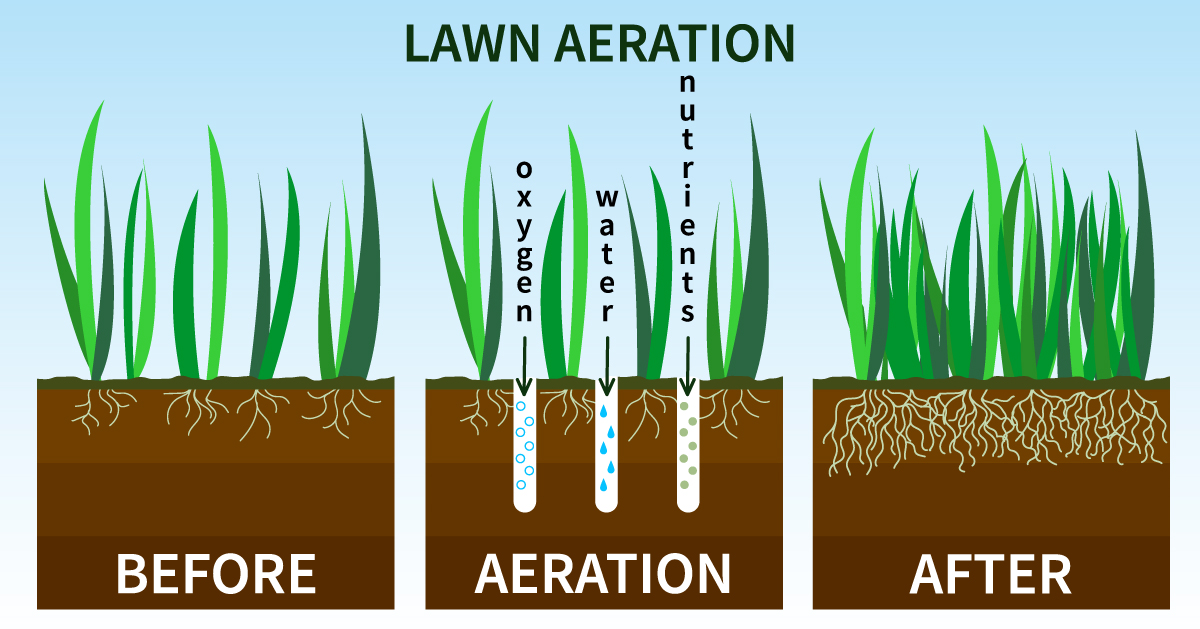Aerating soil is a fundamental practice in gardening that involves creating small holes or channels in the soil to improve its structure and promote healthy plant growth. In this article, we will explore the importance of soil aeration and the numerous benefits it brings to your garden.
- Enhances Oxygen and Nutrient Availability:
Aerating soil helps to improve the circulation of oxygen within the soil profile. The small holes created by aeration allow for better airflow, ensuring that plant roots receive an adequate supply of oxygen. This is essential for their respiration and nutrient uptake processes. Additionally, improved oxygen levels in the soil facilitate the activity of beneficial soil organisms, such as earthworms and microorganisms, which play a vital role in nutrient cycling.
- Relieves Soil Compaction:
Soil compaction is a common problem in many gardens, particularly in areas with heavy foot traffic or heavy clay soils. Compacted soil has poor drainage and restricts root growth, leading to stunted plants. Aerating the soil helps to alleviate compaction by loosening it and creating spaces for roots to penetrate deeply. This allows roots to access water, nutrients, and oxygen more effectively, resulting in healthier and more robust plants.
- Promotes Root Development:
When soil is compacted, roots struggle to expand and develop properly. By aerating the soil, you provide an environment that encourages root growth. The channels created by aeration allow roots to extend deeper into the soil, accessing moisture and nutrients that may be out of reach in compacted areas. Strong and well-developed roots contribute to healthier plants that are more resilient to drought, diseases, and other stresses.
- Improves Water Infiltration:
Compacted soil often has poor water infiltration, causing water to run off the surface instead of being absorbed. This can lead to water wastage and inefficient irrigation. Aerating the soil promotes better water penetration, allowing moisture to reach deeper into the root zone. This improves water retention, reduces runoff, and ensures that plants receive adequate hydration.
- Enhances Fertilizer Efficiency:
Aerating the soil can significantly enhance the efficiency of fertilizer application. Compacted soil tends to prevent nutrients from being absorbed by plant roots effectively. By aerating the soil, you create channels for nutrients to reach the root zone, increasing their availability to plants. This means that the nutrients applied through fertilizers are utilized more efficiently, leading to healthier and more productive plants.
- Supports Microbial Activity:
Aerated soil encourages the growth and activity of beneficial soil microorganisms. These microorganisms play a crucial role in breaking down organic matter, releasing nutrients, and improving soil structure. By promoting their activity, you create a healthy soil ecosystem that contributes to overall soil fertility and plant health.
Conclusion:
Aerating soil is a valuable practice that should be incorporated into your garden maintenance routine. By improving oxygen and nutrient availability, relieving soil compaction, promoting root development, enhancing water infiltration, improving fertilizer efficiency, and supporting microbial activity, soil aeration contributes to the overall health and vitality of your garden. Consider using manual or mechanical aerators, such as core aerators or spike aerators, to create the necessary channels in your soil. By investing time and effort into soil aeration, you will enjoy the benefits of healthier plants, improved yields, and a flourishing garden ecosystem.

